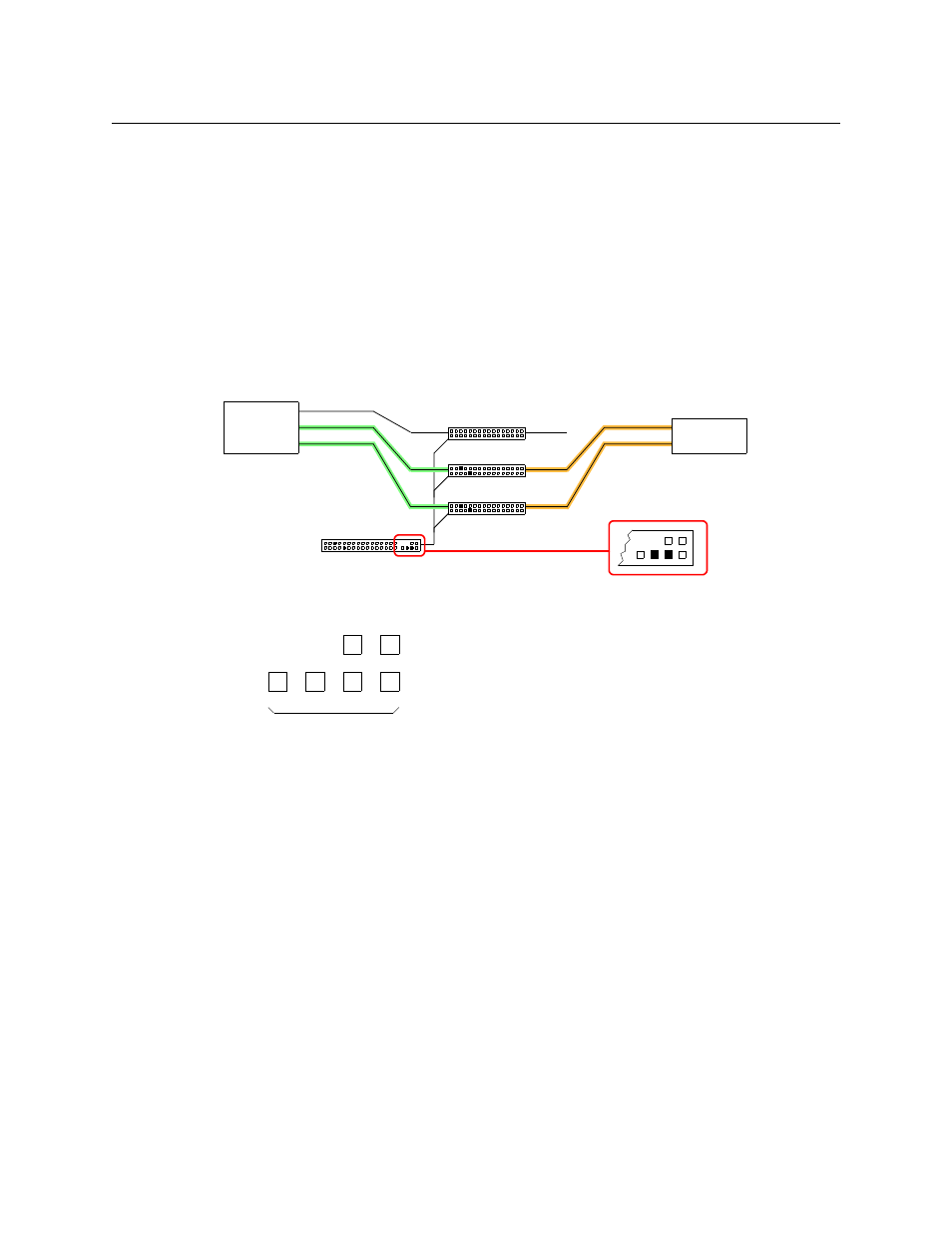Level selection, Takes, Level selection takes – Grass Valley CR Series v.3.2 User Manual
Page 103

91
CR Series
User’s Guide
Level Selection
A video or audio device typically receives or transmits signals of several types. A VTR might
handle HD, SD, AES, and machine control signals that need to be switched simultaneously. The
different signal types are considered “levels” in a router network.
In a stand-alone compact router network, multiple levels can be taken to a destination simulta-
neously (in a single button press).
In a stand-alone compact router network, multiple levels of a destination can be locked simulta-
neously (again, in a single button press).
Example
Two levels, SD and AES, are taken from the VTR to the monitor:
The four level buttons on a control panel correspond to the four router levels, with level 1 on the
left and level 4 on the right.
A level button is lit in amber if a router at that level is present in the network. A level button is
high-tally when the level is selected and low-tally when not.
Exceptions
In most cases, the level buttons are toggles: press the level button to select the level, press the
button again to deselect the level. However, there is an exception: when you have selected all
the levels in your network, pressing any level button deselects the other levels and leaves the
one you pressed selected.
Another exception is when you have only one router in your network. Pressing the level selec-
tion button has no effect. The single router is always selected.
Takes
A network of routers is capable of multi-level takes. Multi-level takes are issued at a remote
panel module. Local (single-level) takes can be issued through the crosspoint displayed in CRSC.
Follow these steps to perform a multi-level take:
VTR
AES
1
Routers
MON
SD
AES
HD
SD
2
3
Remote Panel Module
(Destination Lock)
(Panel Lock)
Levels
1
2
3
4
